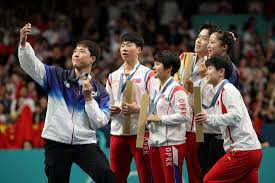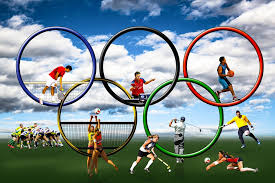Korean Olympics
Korean Olympics have played a significant role in shaping South Korea’s national identity and international presence. From humble beginnings to hosting the Games, South Korea’s journey through the Olympics is a story of perseverance, pride, and progress.
Table of Contents
Early Participation and Development
South Korea, officially known as the Republic of Korea, made its Olympic debut at the 1948 London Summer Olympics, just three years after gaining independence from Japanese colonial rule. Despite the country’s limited resources and the aftermath of World War II, South Korea sent a small delegation of athletes who competed in sports like boxing, weightlifting, and wrestling. While they did not win any medals, their participation marked the beginning of South Korea’s Olympic journey.
The nation’s first Olympic medal came at the 1952 Helsinki Games, where weightlifter Kim Sung-Jip won a bronze medal. This achievement inspired future generations of athletes and marked the start of South Korea’s gradual rise in the world of sports.
The 1988 Seoul Summer Olympics
A turning point for South Korea in the Olympic movement was the 1988 Seoul Summer Olympics. Winning the bid to host the Games was a monumental achievement, reflecting South Korea’s rapid economic development and growing international stature. The Seoul Olympics were not just a sporting event but a showcase of South Korea’s progress and a platform for promoting peace and unity on the Korean Peninsula.

The Seoul Games were notable for several reasons:
- Athletic Achievements: South Korea finished fourth in the medal standings, winning a total of 33 medals, including 12 golds. This success was spearheaded by athletes like wrestler Kim Jong-shin, who won gold in Greco-Roman wrestling, and shooter Park Tae-sang, who secured gold in the men’s 50m pistol event.
- Cultural Impact: The Games highlighted Korean culture and history, with elaborate opening and closing ceremonies that celebrated the nation’s heritage. The mascot, Hodori the tiger, became a beloved symbol of the Games.
- Global Diplomacy: The Seoul Olympics were one of the most politically significant Games, featuring the participation of both the Soviet Union and the United States during the Cold War. It also saw the return of several countries that had boycotted previous Olympics, emphasizing the unifying power of sports.
Winter Olympics and the Rise of New Sports
South Korea’s success was not limited to the Summer Games. The nation also made significant strides in the Winter Olympics, particularly in short-track speed skating. South Korea first competed in the Winter Olympics in 1948 in St. Moritz, but it was not until the 1992 Albertville Winter Olympics that they won their first Winter Games medals.
Short-track speed skating became South Korea’s forte, with athletes like Kim Ki-hoon and Chae Ji-hoon leading the way. Kim Ki-hoon won two gold medals at the 1992 Games, establishing South Korea as a dominant force in the sport. Over the years, other athletes such as Chun Lee-kyung, Ahn Hyun-soo (who later competed for Russia as Viktor Ahn), and Shim Suk-hee continued to excel, bringing home numerous medals and setting world records.

Hosting the 2018 Pyeongchang Winter Olympics
South Korea’s journey as an Olympic host nation continued with the 2018 Pyeongchang Winter Olympics. Winning the bid to host these Games was a testament to the country’s commitment to promoting winter sports and fostering global sporting events.
The Pyeongchang Games were historic and memorable for several reasons:
- Peace and Unity: One of the most significant moments was the participation of North Korea, with athletes from both Koreas marching together under a unified flag during the opening ceremony. This gesture of goodwill and diplomacy was seen as a step towards easing tensions on the Korean Peninsula.
- Athletic Success: South Korean athletes performed admirably, winning 17 medals, including 5 golds. Notable performances included Yun Sung-bin’s gold in skeleton, making him the first Asian athlete to win an Olympic medal in the sport. The women’s curling team, known as the “Garlic Girls,” captured the nation’s heart with their unexpected silver medal finish.
- Technological Innovations: The Pyeongchang Olympics were marked by impressive technological advancements, including the use of 5G networks, drone light shows, and virtual reality experiences, showcasing South Korea’s prowess in technology and innovation.
Notable Athletes and Moments
South Korea has produced numerous legendary athletes who have left indelible marks on Olympic history. Some of these athletes include:
- Kim Yuna: Often referred to as “Queen Yuna,” the figure skater won gold at the 2010 Vancouver Winter Olympics and silver at the 2014 Sochi Winter Olympics. Her grace, skill, and charisma made her a global icon and inspired countless young skaters.
- Park Tae-hwan: The swimmer, known as “Marine Boy,” won gold in the 400m freestyle and silver in the 200m freestyle at the 2008 Beijing Summer Olympics. His achievements brought swimming to the forefront in South Korea and established him as one of the nation’s most beloved athletes.
- Yang Hak-seon: The gymnast won gold in the men’s vault at the 2012 London Summer Olympics, becoming the first South Korean gymnast to win an Olympic gold medal. His signature move, the “Yang Hak-seon,” is named after him.
https://indianfastearning.com/
Future Prospects and Legacy
South Korea’s dedication to sports development and the Olympic movement continues to grow. The nation’s investment in sports infrastructure, training programs, and athlete development ensures that it remains competitive on the global stage.
The legacy of hosting the 1988 Seoul and 2018 Pyeongchang Olympics is evident in the continued popularity of sports and the pride felt by South Koreans in their athletes’ achievements. The Olympic spirit of excellence, friendship, and respect resonates deeply in South Korea, inspiring future generations to pursue their dreams and represent their country with honor.
In conclusion, South Korea’s journey through the Olympics is a testament to its resilience, ambition, and passion for sports. From its early participation to hosting the Games and producing world-class athletes, South Korea has firmly established itself as a significant player in the Olympic movement, contributing to the global celebration of sportsmanship and unity.







